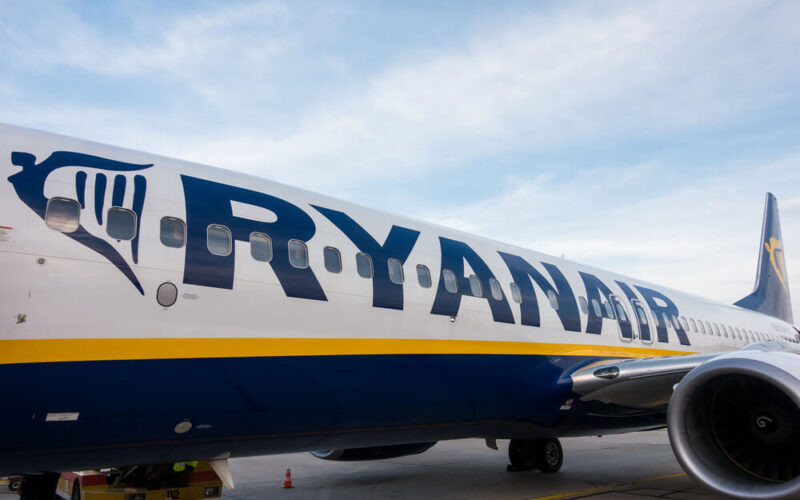Ryanair Group chief executive officer Michael O’Leary remains a strong believer in the troubled Boeing 737 MAX aircraft, as the still-grounded aircraft is still a “gamechanger” in the low-cost carrier’s eyes.
“We think that the MAX aircraft will be key to Ryanair’s ability to drive down operating costs and therefore taking European Union (EU) market share” from other airlines in Europe as the continent recovers from the COVID-19 pandemic, stated O’Leary.
But all is not well in Ryanair and Boeing’s relationship. While the CEO of the group stated that negotiations were going on regarding the compensation due to the aircraft’s grounding, but the negotiations cannot be concluded until “we have some certainty, some definition on when the aircraft will return to service,” indicated O’Leary.
“It is a great aircraft, we’re believers in it, we think it will transform Ryanair’s cost base in the next 10 years.”
O’Leary also added that the group is interested in making a new order for the 737 MAX-10.
Ryanair expects the aircraft to return to service in September, with the group receiving its first delivery in October 2020. Boeing currently has built 18 Ryanair’s 737 MAX jets, planespotters.net data shows.
The short-term future, however, might look bleak for the low-cost carrier.
Job cuts and expected losses
Just like almost any airline in the world, Ryanair was affected by the COVID-19 pandemic and travel restrictions. The group’s results indicated that in March it carried 51% fewer passengers, while through April until June 2020, the airline would carry 99% fewer passengers compared to last year’s result.
Ryanair plans to resume services at 40% capacity in July, with an increase to 60% in August 2020. While the company is unable to provide any guidance going forward, the airline expects to post a loss of more than $216 million (€200 million) in Q1 FY21.
Nevertheless, the low-cost carrier finished off FY2020, which Ryanair’s accountants ended on March 31, with a $1.08 billion (€1 billion) profit, despite a $381 million (€353 million) exceptional charge related to fuel hedging. Like most airlines in the world, Ryanair hedged its fuel for the upcoming financial year. For FY21, the company hedged 90% of its expected usage prior to the coronacrisis. As a result of the breakout and falling oil prices, the airline effectively over-hedged its fuel.
If the return to service is even slower than expected, Ryanair expects to take more exceptional charges.
Furthermore, the airline will close bases and cut 3,000 pilot and cabin crew jobs, including 250 office jobs, despite it having more than $4.3 billion (€4 billion) in cash, including 330 debt-free Boeing 737s.
One of the target bases could be Lauda’s base in Vienna Airport, Austria (VIE). Over the past few weeks, Ryanair and Lauda’s union were in open conflict, as the latter was not willing to accept pay cuts and a new Collective Labor Agreement (CLA). To make its argument stronger, Ryanair already overtook Lauda’s slots in VIE and set a date for the union to sign the new agreement – May 20.
If the agreement is not signed, the base will be closed on May 30, 2020, “with over 300 job losses,” indicated the group’s release.
Going forward, Ryanair expects that ticket sales will drive travelers to climb onboard aircraft once again. While the group has a base cost advantage, O’Leary was adamant that state aid only distorts competition in the European market and will allow selling tickets at prices that are below its base-cost.
O‘Leary, who was highly critical of state aid during the COVID-19 pandemic, criticized one of its main competitors, the Lufthansa Group, calling it a “crack cocaine junkie.”

